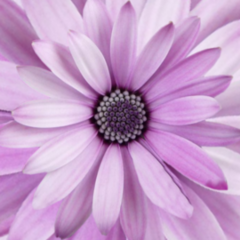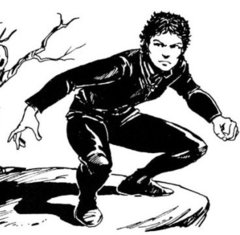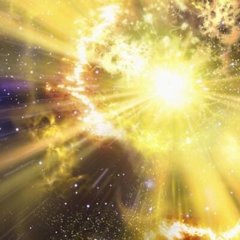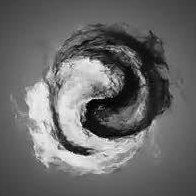-
Content count
11,813 -
Joined
-
Last visited
-
Days Won
274
About steve
-
Rank
Dao Bum
-
I think this dynamic applies to things like dream interpretation, tarot, psychoanalysis, and many other areas. Certainly there are archetypes and commonalities, but they only go so far, IMO. I hope I don't come off that way with my reply above, that's not at all what I intended. I do think everyone can benefit from this type of investigation, provided they're in a good place mentally. But I consider it a very intimate and individual process. Glad to hear it Luke
-
Thanks Not the case in Buddhist schools, as far as I am aware but i’m not that knowledgeable. That type of error is addressed by the Two Truths doctrine as well as the fourfold negation. At least that’s the way I see it. That doesn’t mean that Buddhist schools consider “dualism” to be “real” or true, mind you. Like Advaita Vedanta, Buddhist teachings do consider our perception of duality to be illusory, or I prefer to look at it as an incomplete understanding.
-
I consider it an invitation and an opportunity. I do buy it in that sense because over time it has proven itself to be true... for me. If it doesn't seem to be true in a particular instance, rather than write if off as wrong, I allow the possibility that maybe I just didn't discover the connection... yet. The way I approach it is this - When something elicits reactivity in me, I turn not toward the thing that I "don't like" so much but toward what I am feeling - in my body, in the inner and outer words and stories, the feelings, memories, expectations, and so forth. Almost invariably, I make discoveries that show me something about myself. I find a lot of value in that process. YMMV
-
Which schools would that be @old3bob? I’m not familiar with any.
-

How do you know if a Qigong form truly fits you?
steve replied to Kati's topic in General Discussion
Person steve has a similar experience, that’s a very good way to describe how I’ve used qigong over the years. The practices are there when I need them, predictable and reliable. -

How do you know if a Qigong form truly fits you?
steve replied to Kati's topic in General Discussion
I've practiced qigong for about 20 years. One thing I've learned is that my expectations need to be realistic. Certainly there are benefits from the forms I practice but qigong has not proven to be a comprehensive and complete system for me. I practice both Shiba Luohangong and Ba Duan Jin and derive valuable and different benefits from each. I have also continued to practice internal Chinese martial arts over that period of time - taijiquan, xingyiquan, and baguazhang. While I no longer compete or train martially with others, these have found a valuable role in my physical, energetic, and mental health. Finally, perhaps most important to me is my meditation practice from a Tibetan tradition. While I do think it's important to stick with a practice for a long time to really probe its depth and potential, I don't know that each one of us can expect to find a single practice or system that does everything we are looking for. Some do and that is wonderful but it hasn't been that way for me. I also think that we need to listen to our body and mind and maintain some openness and flexibility as our needs can change over time. -
House of Leaves, an unusual book about a house that’s much larger inside than physically possible…. really strange and compelling.
-
I sometimes cannot relate to things you post, but I can say that about every person here. I love our idiosyncrasies and our collective weirdness. I for one hope you stick around. It just wouldn't be quite as interesting or exotic without you!
-
Someone asked me this question about a year ago and, without thinking much about it, what came out was... I am practicing for my death. It sort of surprised me, and them as well. My practice has become mostly informal, meaning not just on the cushion but in my day to day life, as often and consistently as possible. It's wonderful to sit in a quite, comfortable room and practice but if my practice is not there for me when I am challenged and stressed, when I am suffering; if it is not enriching my life, and the lives of those around me in the moment, making me more kind, flexible, resilient, resourceful, creative... what is the point? (that is a rhetorical question, I am only speaking for myself - everyone has their own path and objectives). So my point is that I continue to practice so that I can be supported to show up fully in my life and to be able to access and bring all available resources to any and every given situation to the best of my ability. Death is likely to present the biggest challenge in my life. How to let go of everything I have, everything and everyone I've known, and everything that I am? And how to do it without too much suffering for myself and for those around me? Of course, it's nice to say things like - I am God, I am the universe, I am the non-local awareness, Buddha, the Nature of Mind. I am birthless, deathless... I have no fear of death. But they are all words... the test comes when there is extreme pain, illness, when the body and mind are close to the end and loved ones are waiting and suffering. What will it be like then? I watched my father die not too long ago and there was so much pain, so much fear. It was excruciating for him and those around him in the last few days. Wouldn't it be interesting to navigate that with some peace, some confidence, some equanimity and directly experience that transition and what lies beyond with as much clarity as possible? Rather than be heavily drugged and hooked up to all sorts of high tech garbage? I think so... at the moment. And of course, circumstances may change my mind when it's my turn. Time will tell! In the tradition I follow, it's said that we should be able to bring all life's experiences onto the path. Life itself becomes the practice. So for me, at this moment, practice really has no endpoint, I guess I can say I am practicing to live and to die.
-
I would say that for the practitioner, it is very much of time. There is a very distinct before and after.
-
Your method for dream work is very similar to the method in my tradition for working with any experience, including dreams. Just as you recreate and embody the dream in your mind and feelings, we do the same with any experience or person that generates reactivity. These can be very recent experiences, alive in us at this very moment. They can be remote memories, dreams, people who generate reactivity, future worries, any life experience. We turn to the experience if it is active in the moment, or recreate whatever it is we want to work with as vividly as possible in body, speech, and mind. We sit with that for as long as it is fresh and alive. While we don't engage with it intellectually, we are often taken to earlier times and other experiences that may have some connection, often a connection we were not aware of. The one thing that may be a bit different is that we are working with the sense of a "me" who is being affected by the experience rather than hosting the experience itself. It's a very subtle but important difference in our paradigm. And we rest in the stillness, silence, and spaciousness. This is referred to as hosting pain identities. . It's a wonderful and powerful practice and one way we avoid the bypassing that can so easily happen to practitioners.
-
I can't see how anything I described is evolution. Feel free to explain. The perfect and pure mind, otherwise known as Buddha-mind, does not evolve. People like to say things like 'only the Self knows the Self,' in my tradition it is often referred to as "Self-awareness," but nevertheless the ones writing and talking about this stuff, teaching others, having realization, traversing the bardos, and engaging in practice are people. They are manifestations, expressions of the Self, not equivalent to the Self. My teacher's teacher used to say, "Remember, we are not dzogchen, we are dzogchen-pa," -pa- referring to practitioner. Seeing yourself as "the Self" or the pure nature of mind, is an error, it denies our human form and related imperfections which color our experience, though they can be extremely subtle at times. This conflation leads to deviations in practice and understanding. This is just my experience and understanding of the tradition I study and practice. Others may experience and understand things differently. ...or to a vacation rental on Deep Creek Lake. At least I had a few days off work to adjust. It was a wild ride!
-
I agree, it is an apparent and passing identity. Nevertheless, it is how we experience life from birth to death, defined by this human form and sensory apparatus. It is what we have to practice and realize with. Realization does not mean that our human form vanishes, at least that is my experience. It persists until death or rainbow body (in the dzogchen tradition). Consequently, it is important for me to be aware that I am not the pure and perfect mind itself, i am a practitioner - which is an expression of that pure and perfect mind. Conflating the two leads to errors in understanding and practice in the teachings I follow.
-
Expensive poison!











.thumb.jpg.7621d8e4dd2d0d878c4efc817a267564.jpg)















